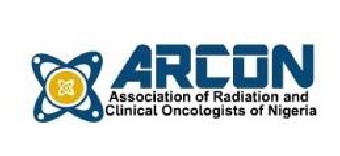By Muhammad Amaan
The Association of Radiation and Clinical Oncologists of Nigeria (ARCON) has called for collaboration among stakeholders in the cancer space to reduce the burden of the disease in Nigeria.
The National President, Dr Nwamaka Lasebikan, made the call on in a statement on Tuesday to commemorate the World Cancer Day, 2025, with the theme, “United by Unique.”
According to her, the fight against cancer is a shared responsibility and the association believes that by working together, the nation can create a future where every Nigerian has access to early detection, quality treatment and support.
“We encourage the government to continue investing in oncology infrastructure and workforce development; the private sector should support innovative cancer care solutions through partnerships and funding.
“Communities and advocacy groups should help spread awareness and encourage preventive care and the media to continue to play a key role in providing accurate information on cancer risks, symptoms, and treatment options.”
She said the association was committed to leading with expertise, compassion and innovation.
The president added that the association was constantly seeking key stakeholders and partners to join in reshaping the future of cancer care in Nigeria.
According to her, cancer is not just a health issue, but a societal challenge that affects individuals, families and communities in profound ways; therefore, the need for continued collaboration.
Dr Lasebikan said that each patient’s experience was unique, shaped by personal, cultural and economic factors.
“Yet, through collaboration, expertise and innovation, we can unite to improve early detection, treatment accessibility and survival outcomes.
“Cancer remains a growing public health challenge in Nigeria, with an estimated more than 120,000 new cases annually and a high rate of late-stage diagnoses.”
The president attributed the increasing numbers to limited awareness and screening opportunities, leading to delayed diagnosis and gaps in treatment infrastructure, with only 10 facilities offering radiotherapy nationwide.
Dr Lasebikan also identified the high cost of cancer care, which placed an enormous financial burden on patients and their families as a factor, while there was an alarming shortage of trained oncology professionals, making timely and specialised care harder to access.
She said there was hope as Nigeria’s oncology landscape was evolving, and ARCON along with critical stakeholders, were driving innovative solutions that enhanced cancer care delivery across the country.
Lasebikan said that the solutions were through early detection and awareness by advocating for nationwide cancer screening programmes to promote early diagnosis.
She also listed enhancing access to quality treatment by supporting policies that increase investment in radiotherapy centres and oncology units.
“Encouraging public-private partnerships to make advanced treatments more widely available and promoting the adoption of innovative technologies to improve treatment accuracy and effectiveness.
“Strengthening Nigeria’s oncology workforce by advocating for more training of clinical oncologists and other healthcare workers involved in delivering cancer care.”
She said the theme was a reminder that while every cancer journey was personal, collective efforts could lead to meaningful change.
The World Cancer Day is an international day marked on February 4 annually to raise awareness about cancer and to encourage its prevention, detection and treatment.
The “United by Unique” campaign focuses on a people-centred approach to cancer care, which places individuals and communities at the heart of cancer care and health systems.




